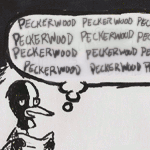|
i wanna reed Babbling Corpse: Vaporwave And The Commodification Of Ghosts
|
|
|
|

|
| # ¿ May 13, 2024 21:44 |
|
maybe Everything was Forever, Until it was No More: The Last Soviet Generation for the tankies
|
|
|
|
i once ate a book on a bet
|
|
|
|
vonnegut is really good but also overrated
|
|
|
|
read my lips: no new texas
|
|
|
|
Epic High Five posted:Votes so far are shaking out differently than I expected but still v good nov 8th all over again
|
|
|
|
when do the polls close?
|
|
|
|

|
|
|
|
An Eternal State “It had never even occurred to me that in the Soviet Union anything could ever change. Let alone that it could disappear. No one expected it. Neither children, nor adults. There was a complete impression that everything was forever.” So spoke Andrei Makarevich, the famous songwriter and musician, in a televised interview (1994). In his published memoirs, Makarevich later remembered that he, like millions of Soviet citizens, had always felt that he lived in an eternal state (vechnoe gosudarstvo) (2002, 14). It was not until around 1986 and 1987, when reforms of perestroika (reconstruction) were already afoot, that the possibility of the socialist system not lasting forever even entered his mind. Many others have described a similar experience of the profound feeling of the Soviet system’s permanence and immutability, and the complete unexpectedness of its collapse. And yet, Makarevich and many Soviet people also quickly discovered another peculiar fact: despite the seeming abruptness of the collapse, they found themselves prepared for it. A peculiar paradox became apparent in those years: although the system’s collapse had been unimaginable before it began, it appeared unsurprising when it happened. When the policies of perestroika and glasnost’ (openness, public discussion) were introduced in 1985, most people did not anticipate that any radical changes would follow. These campaigns were thought to be no different from the endless state-orchestrated campaigns before them: campaigns that came and went, while life went on as usual. However, within a year or two the realization that something unimaginable was taking place began to dawn on the Soviet people. Many speak of having experienced a sudden “break of consciousness” (perelom soznania) and “stunning shock” (sil’neishii shok) quickly followed by excitement and readiness to participate in the transformation. Although different people experienced that moment differently, the type of experience they describe is similar, and many remember it vividly.
|
|
|
|
anyone uh started it?
|
|
|
|
ive read chapters 1 2 and 3 and 3 has some great bits, made me laugh also lol by the time u get to chapter 2 u will realize why i recommended this book reminder u can get a digital copy on the chat thing that someone else can link quote:The institutional power the Komsomol delegated to its authorized representatives was everywhere redeployed for the creation of “normal life.” The Komsomol committees became sites for this production. Their members were increasingly chosen according to the principle of belonging to svoi. Irina describes the composition of her committee in the early 1980s:
|
|
|
|
oh and spoiler alert the ussr dissolved and is no more  quote:Natalia and Irina even used a coded phrase, “to leave for the raikom” (uiti v Raikom), that only svoi understood: “If we wanted to go to an art exhibition or to a café during work, we told the chair of our department that we needed ‘to leave for the raikom.’ ” These techniques of personalizing and domesticating the time, space, institutions, and discourses of the state, by citing authoritative forms, went on at all levels of the ideological hierarchy, including the Communist Party committees that were superior to the Komsomol committees. Occasionally this led to comical situations. Once, Natalia and Irina told the boss of their department at the library that they needed to leave for the raikom. Instead, they went to try out a new pizzeria that had recently opened in the neighborhood. An hour later, the department boss also showed up at the same pizzeria with another senior colleague. They were both members of the party committee and had also left work allegedly for urgent business at the local party raikom. After sitting down at a table they noticed Irina and Natalia. “It was very awkward,” Natalia remembers, “I almost choked laughing. We were sitting at different tables and behaved in the most civilized way, as if everything was fine.” this svoi thing sounds pretty chill pretending that all the communisty poo poo is meaningless and using the system to chillax with friends is my kind of fully automated space communism
|
|
|
|
i finished it today!
|
|
|
|
but theres a week extra or something i dunno
|
|
|
|
i didn't expect to like it as much as i did!
|
|
|
|
thread reopened for low energy discussion I liked this paragraph We will use the slang term stiob to refer to the ironic aesthetic practiced by groups such as the Mit’ki and necrorealists. Stiob was a peculiar form of irony that differed from sarcasm, cynicism, derision, or any of the more familiar genres of absurd humor. It required such a degree of overidentification with the object, person, or idea at which this stiob was directed that it was often impossible to tell whether it was a form of sincere support, subtle ridicule, or a peculiar mixture of the two. The practitioners of stiob themselves refused to draw a line between these sentiments, producing an incredible combination of seriousness and irony, with no suggestive signs of whether it should be interpreted as the former or the latter, refusing the very dichotomy between the two.
|
|
|
|

|
| # ¿ May 13, 2024 21:44 |
|
https://www.youtube.com/watch?v=tVx3lt8ZKHw
|
|
|



